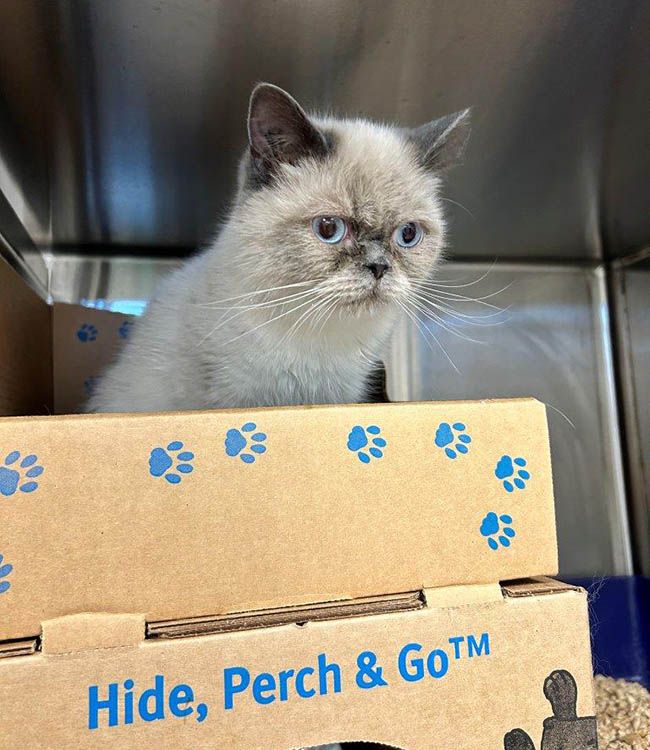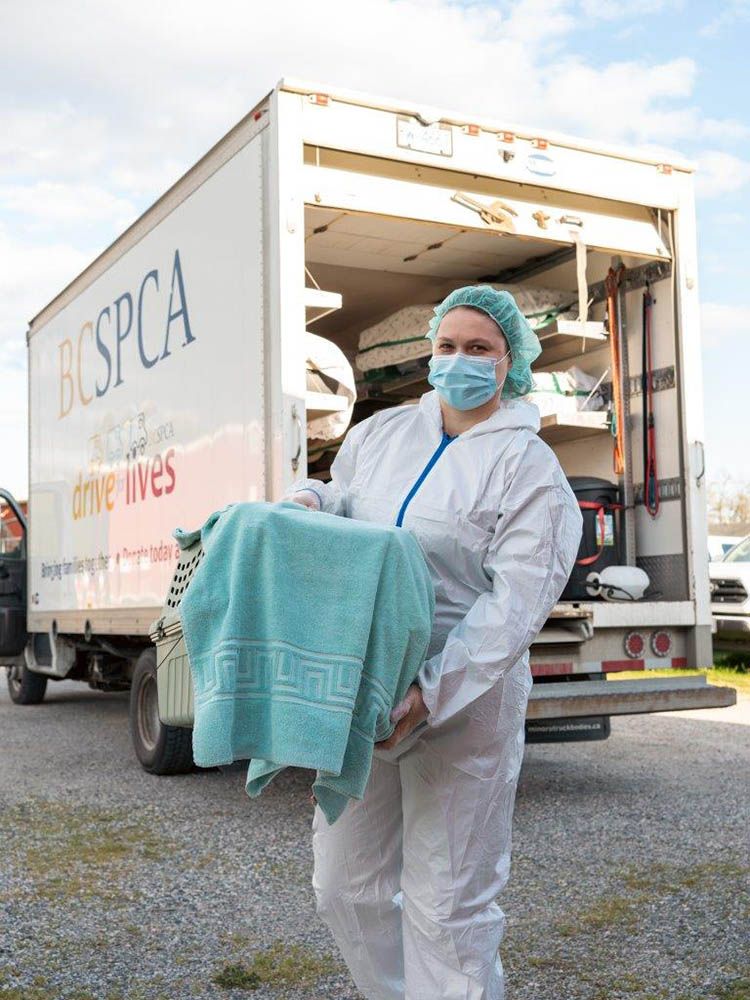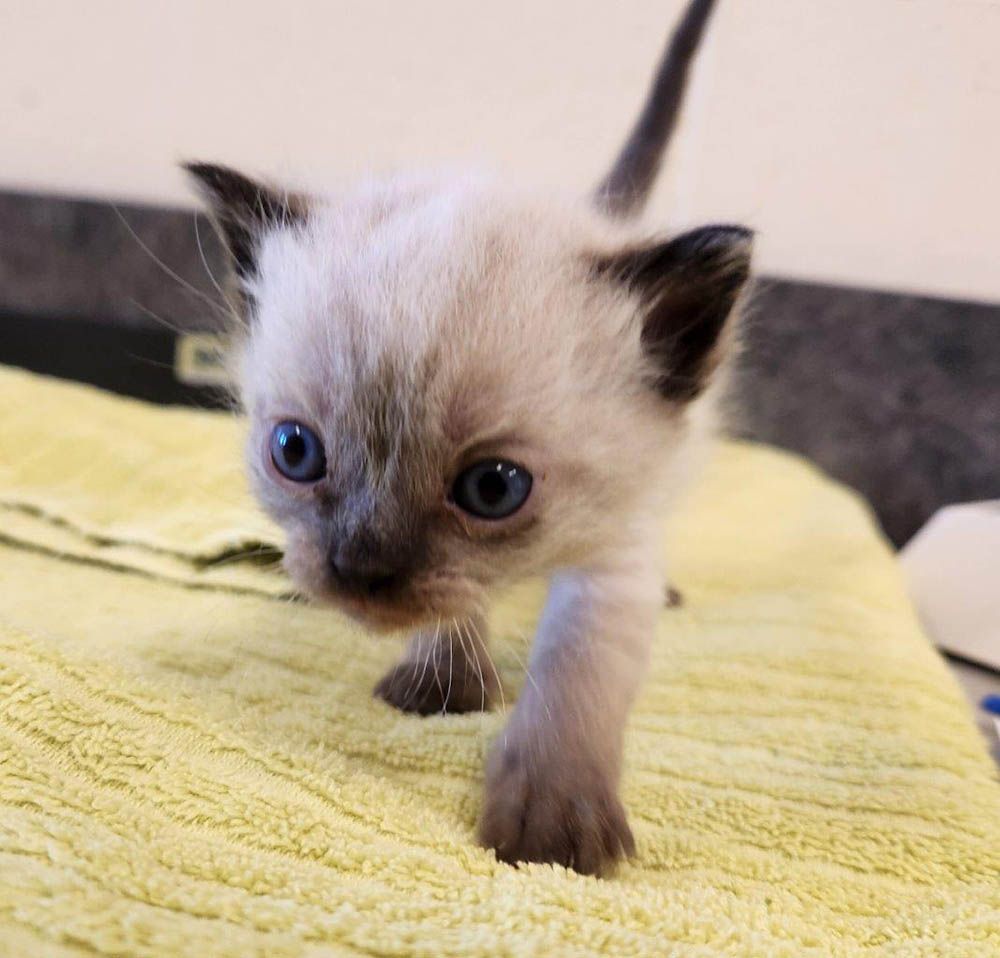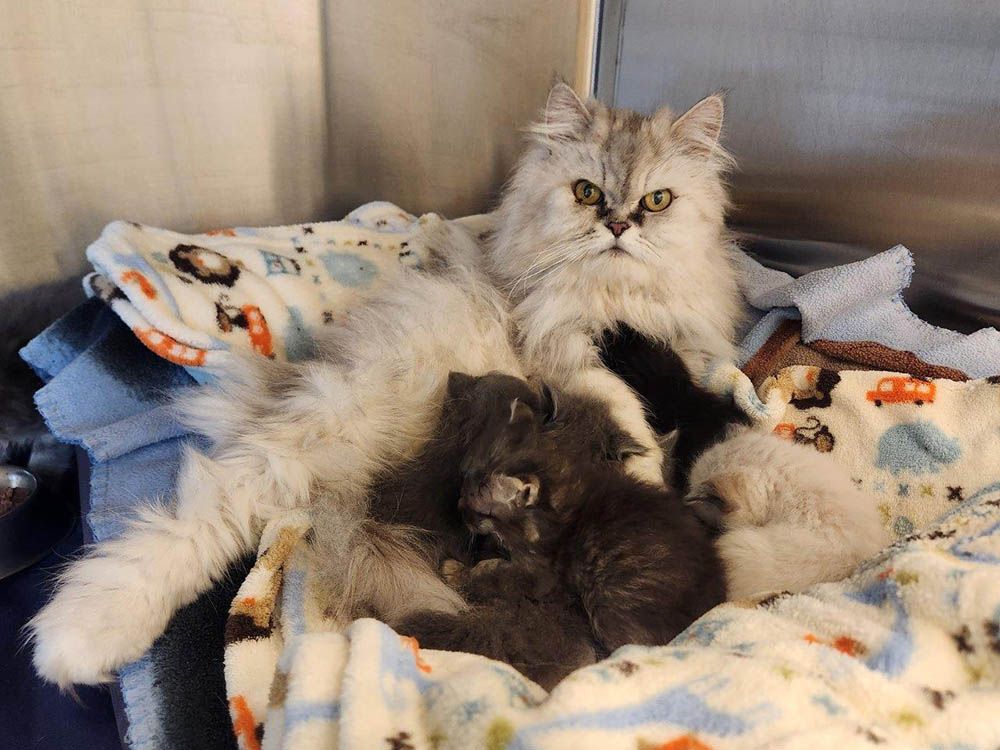
Over 80 Persian-mix cats are in the care of B.C. SPCA animal centres in Surrey and Kamloops after the family of their late owner reached out for help.
The SPCA first became involved in January when the cats’ owner surrendered a dozen cats. Next of kin then contacted the animal welfare agency in early May about the remaining 83 felines after their owner died.
Sixty-three of the cats were taken to the B.C. SPCA Surrey animal centre through the Drive for Lives program, while the other 20 were taken to Kamloops.
The Surrey centre and its Good Shepherd Barn are acting as a triage facility, as they do for other large cat intakes from around B.C.
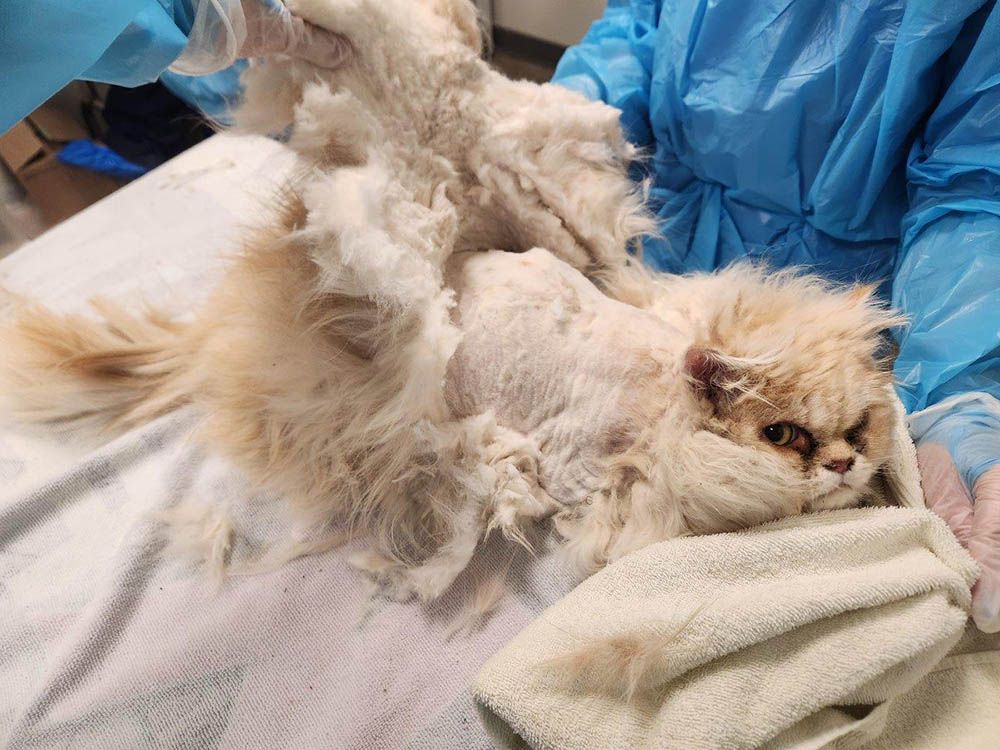
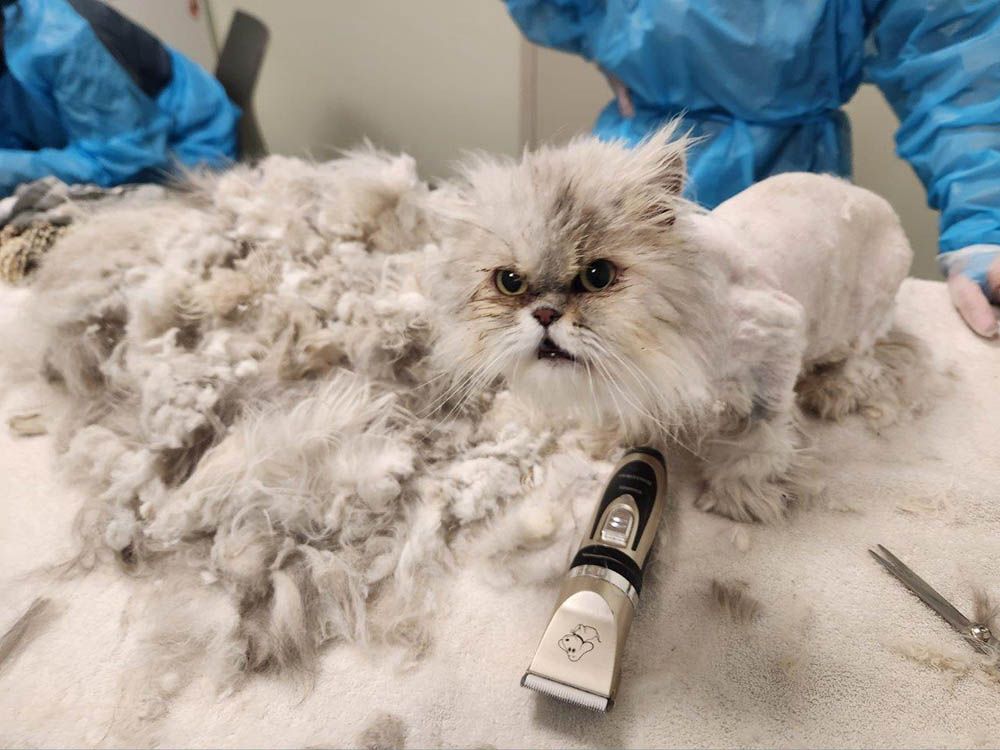
“Intaking and providing care for 83 cats requires a significant investment of resources,” said Layla Gilhooly, manager of the centre and barn. “Especially given their condition, with at least half of them still needing a spay or neuter surgery, various medical treatments, and most requiring significant grooming.”
The cats were fearful at first, hiding under towels and in their kennels, but that’s common, said Gilhooly. “Despite their nervousness, many of the cats were quite friendly during intake — purring, making air biscuits and leaning in for pets.”
But a lot of them were in dire need of care. Many were extremely matted, which requires shaves for relief. “Severe matting is very uncomfortable, often even painful, and can cause skin irritation as the mats trap bacteria and dead skin cells,” Gilhooly said. “Some of the cats also had feces matted into their fur.”
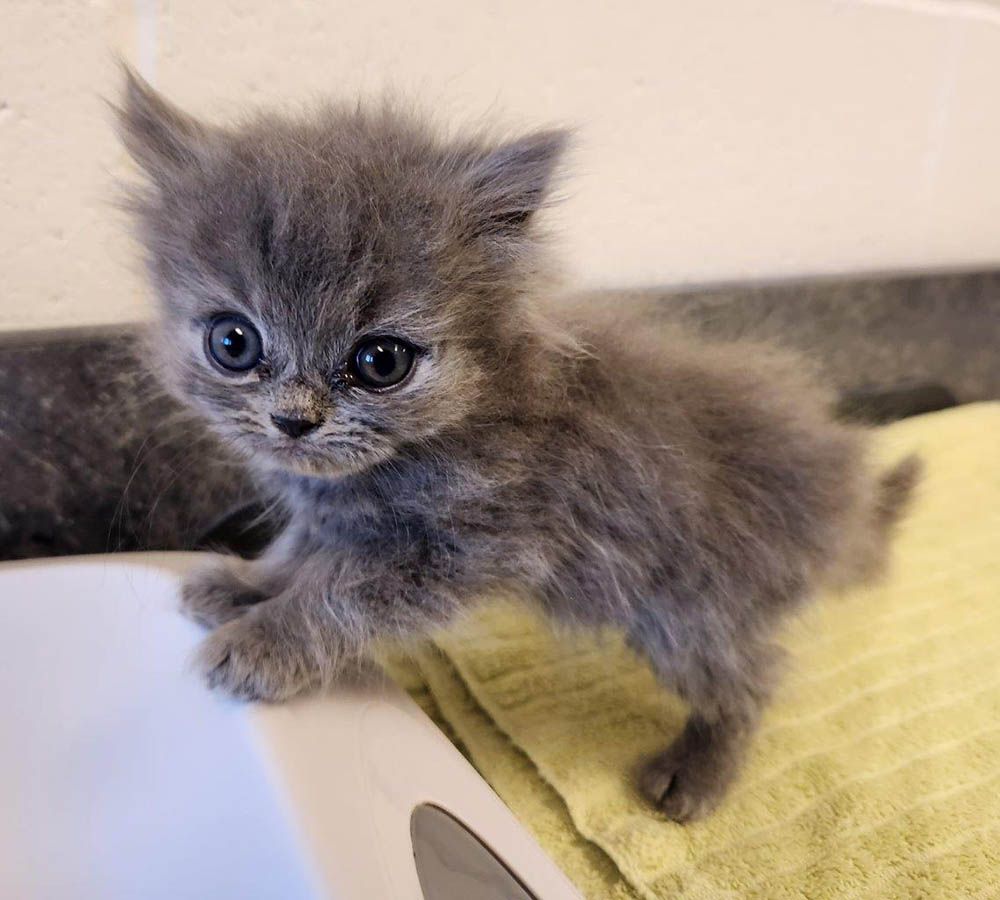
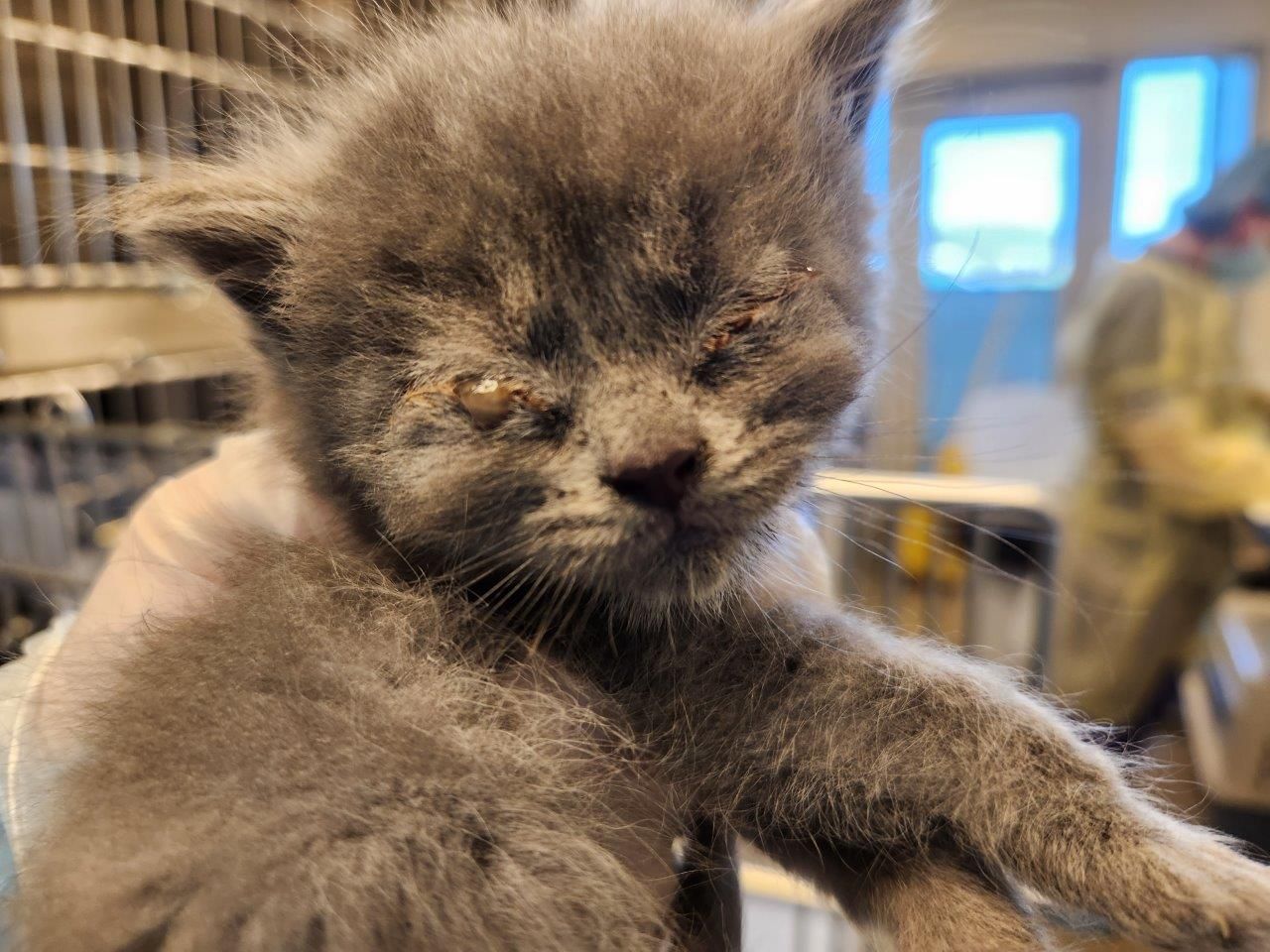
All the cats are being treated for giardia and roundworm, which involves a five-day course of medication followed by a bath to remove any eggs still in the fur. The lingering eggs can cause reinfection when a cat grooms itself.
“Some of the cats also have varying degrees of upper respiratory infection,” said Gilhooly, ranging from severe congestion to mild cases of eye and nasal discharge. Those with problems are on antibiotics and will go to a vet if symptoms don’t improve.
Gilhooly said most are underweight and a few need dental care for things like broken canine teeth and gingivitis.
After triage, 27 of the Surrey cats were moved to other centres to await adoption, while 36 remain there.
When they’re available for adoption depends on how they’re doing. Some need further socialization before they’re ready, while others will be available as early as Wednesday, or will be added to the B.C. SPCA adoption page in the coming days and weeks.
Anyone who can help the SPCA with care for these cats and other animals and pets is asked to visit spca.bc.ca .
